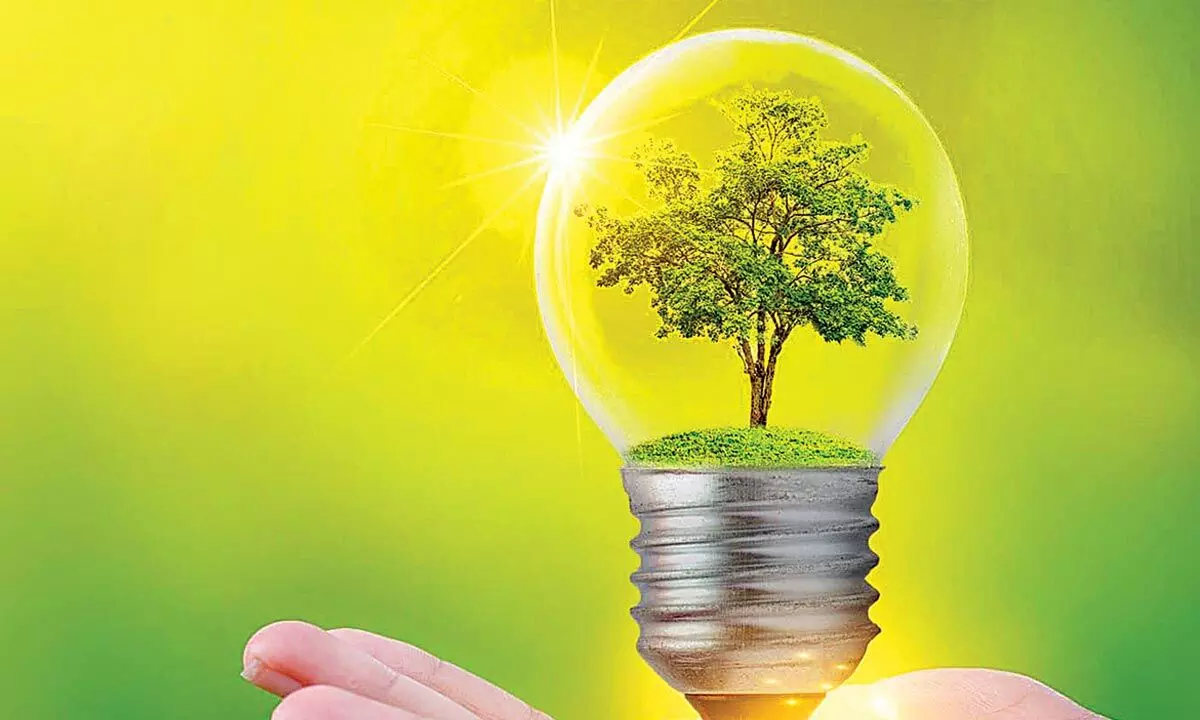Cleantech and green energy players can boost sustainable economic development
GCIP is hopeful of harnessingthe innovation and entrepreneurship spirit in SMEs and startups
image for illustrative purpose

There is a dire need to find new ways to live a more sustainable life without compromising on the country’s growth and development. Nearly 40 Indian cleantech startups have come up with new ideas to power existing clean energy technology and are doing their bit to save the environment
The sustainable development goals and the Paris Agreement highlight the global commitment to safeguard global commons. The United Nations Industrial Development Organization (UNIDO), with its unique mandate to support inclusive and sustainable industrial development, has partnered with the Global Environment Facility (GEF) to address the most pressing global environmental challenges of our time.
Through fostering innovation and entrepreneurship ecosystems, UNIDO and GEF seek to promote affordable and scalable solutions enabling our partner countries to leapfrog to cleaner and more resilient economies while protecting the global commons. In today’s economic landscape, where resource constraints and climate concerns are no longer externalities but opportunities for emergence of new and sustainable business models, technology innovation has emerged as a key driver of economic growth. The GCIP seeks to harness the catalytic potential of innovation and entrepreneurship spirit in SMEs and startups to support sustainable economic development. GCIP promotes an innovation and entrepreneurship ecosystem by identifying and nurturing cleantech innovators and entrepreneurs by building capacity within national institutions and partner organizations for sustainable implementation of the cleantech ecosystem and accelerator approach and by being associated with national policy makers to strengthen the supportive policy framework for SMEs and entrepreneurs.
It is through cleantech ecosystems and accelerator approach that GCIP catalyzes investment to support and accelerate startup entrepreneurs towards the development and commercialization of their innovative ideas. Partnerships and close consultations with all national stakeholders are critical to maximize synergies and share knowledge and best practices that can help in enhancing the contribution of cleantech startups towards climate change mitigation, while increasing productivity and generating growth and wealth.
Every April 22 is celebrated as Earth Day to remind us about the usages of natural resources along with reinforcing the message of protecting our mother earth. The day is observed to educate masses on protection of the environment, flora and fauna and restore damaged ecosystems as well. There is a dire need to find new ways to live a more sustainable life without compromising on the country’s growth and development. Nearly 40 Indian cleantech startups have come up with new ideas to power existing clean energy technology and are doing their bit to save the environment.
India, like other countries, is facing significant social and economic challenges after implementing measures to contain the spread of Covid-19. To address these challenges, public and private sector leaders are considering short-term and long-term interventions to support economic recovery. In this context, India recently came up with a Rs. 20 lakh crore relief package—one of the largest stimulus packages in the world as a share of gross domestic product (GDP). This package includes ongoing efforts by the government to boost healthcare facilities, measures by the Reserve Bank of India (RBI) and special packages that account for about 10 percent of the GDP.
The stimulus package, in its current form, focuses largely on economic recovery. As policymakers prepare interventions and industries consider changes to their business models and operations, there is an opportunity to prioritize efforts that work towards building a clean, resilient, and least-cost energy future for India, including electric vehicles, energy storage, and renewable energy programs. This report discusses how Covid-19 is beginning to influence a clean energy transition in India, specifically for transport and power sectors, and identifies principles and strategic opportunities for the country’s leaders to drive economic recovery and maintain momentum on the clean energy transition.
India’s transport sector can save 1.7 gigatonnes of cumulative carbon dioxide emissions and avoid about 600 million tonnes of oil equivalent (Mtoe) in fuel demand by 2030 through shared, electric, and connected passenger mobility and cost-effective, clean, and optimized freight transport. Significant savings are also achievable in the power sector by adopting renewable energy, energy storage, efficiency and flexibility.
Short-term relief in the form of providing adequate liquidity infusion to restore jobs and small industries, formulating guidelines and standard operating procedures for safe passenger mobility and freight transport and supporting electricity distribution companies’ (discoms) health can help transport and power sectors with recovery.
Strategic opportunities for economic recovery and green growth exist in India’s clean transport and power policies and programs. The sector’s major opportunities include making public transport safe, enhancing and expanding non-motorized transport infrastructure, reducing vehicle kilometres travelled through work-from-home where possible, supporting national strategies to adopt electric vehicles in freight and passenger segments while striving to make India an automotive export hub.
In the power sector, major opportunities include improving electricity distribution business and operations, enabling renewables and distribution of energy resources, and promoting energy resilience and local manufacturing of renewable energy and energy storage technologies.

